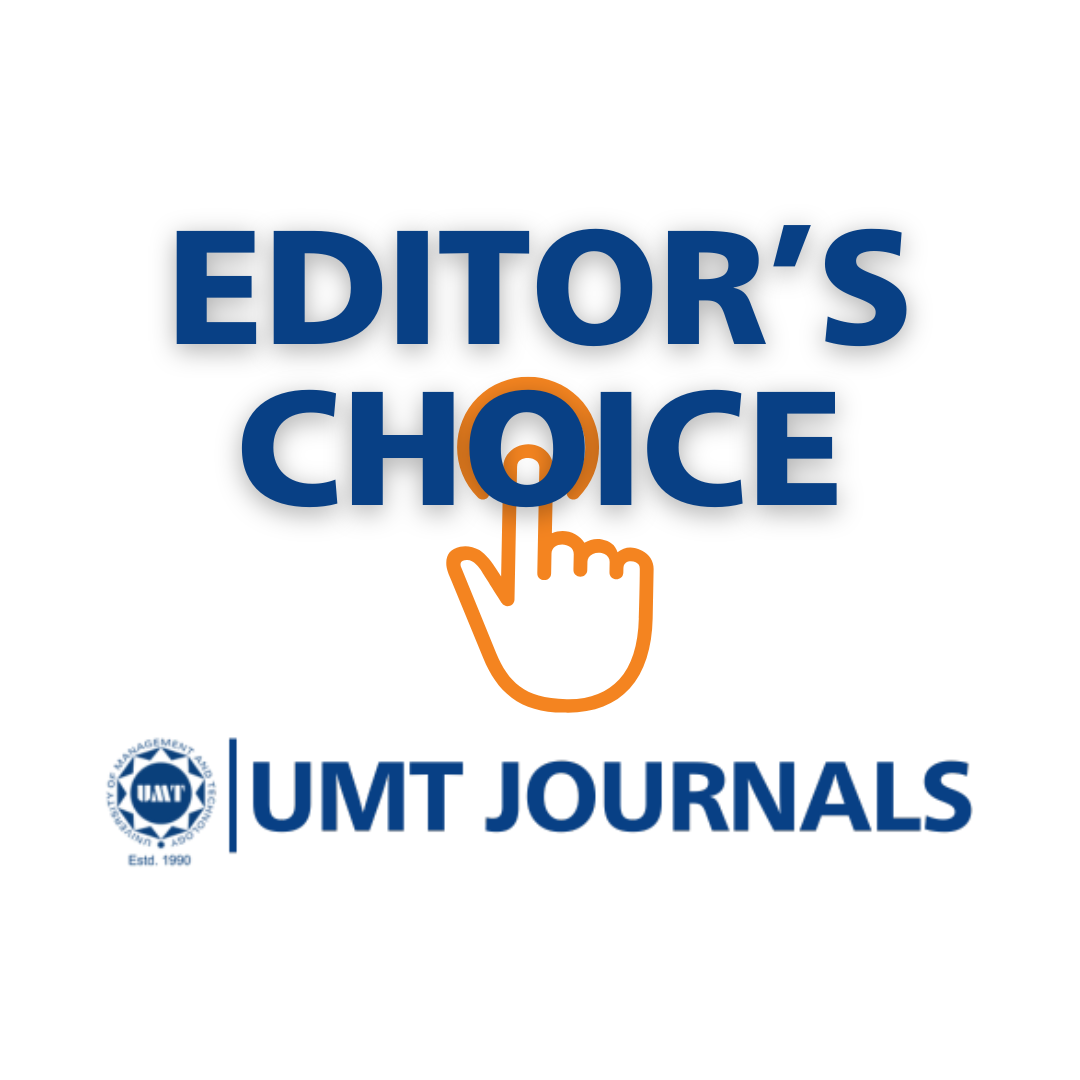Knowledge, Attitude and Practices of University Students of Pakistan towards Antibiotic Use and Resistance: Questionnaire Based Assessment
Abstract
 Abstract Views: 548
Abstract Views: 548
Antibiotic resistance is a serious health crisis all over the world and students of biological sciences should have proper awareness to combat the problem. This study aims to assess the knowledge, attitude and practices (KAP) towards antibiotic use and resistance among university students of biological sciences in Pakistan. A descriptive cross-sectional study was conducted amongst 826 students of biological sciences programs from eight major Pakistani universities during September-November 2020. A self-administered online questionnaire was developed which consisted of four dimensions: sociodemographic characteristics (3 questions) and assessment of the knowledge, attitude and practices with 13, 6 and 11 questions, respectively. Association of KAP scores with sociodemographic characteristics was analyzed by nonparametric analysis i.e., Mann-Whitney U and Kruskal-Wallis H test (p-value < 0.05). The sample comprised more females (82.9%) than males while most of the respondents belonged to 21-23 years and enrolled in the master’s degree. The overall knowledge score (correct answer) was 74.7% which was significantly associated with gender, age and degree. The positive attitude score (87.9%) was significantly higher in >23 years age group. Around 75% of the surveyed students had positive practices. The scores were observed significantly higher in females, 21-23 years age group and doctoral students. The study provides baseline evidence about the knowledge, attitudes and practices regarding antibiotic use and resistance among biology students. Overall, good positive attitude was depicted by participants however level of knowledge and positive practices was found lower and declared as moderate. Academic interventions such as lectures, courses, seminars and workshops on antibiotic use, along with establishing open-access antibiotic-resistance learning sites and use of mainstream and social media platforms, etc., are needed to improve the awareness and practices of university students of biological sciences with regards to the rational use of antibiotics.
Keywords: antibiotics, cross-sectional study, knowledge, attitudes and practices (KAP), Pakistan, university students
Copyright (c) The Authors
Downloads
References
Piddock LJ. The crisis of no new antibiotics—what is the way forward? Lancet Infect Dis. 2012;12(3):249-53.
Spellberg B, Bartlett JG, Gilbert DN. The future of antibiotics and resistance. N Engl J Med. 2013;368(4):299-302.
Jairoun A, Hassan N, Ali A, Jairoun O, Shahwan M. Knowledge, attitude and practice of antibiotic use among university students: a cross sectional study in UAE. BMC Public Health. 2019;19(1):518.
World Health Organization. New report calls for urgent action to avert antimicrobial resistance crisis. Web site. https://www.who.int/news/item/29-04-2019-new-report-calls-for-urgent-action-to-avert-antimicrobial-resistance-crisis. Published April 29, 2019. Accessed January 10, 2021.
Sakr S, Ghaddar A, Hamam B, Sheet I. Antibiotic use and resistance: an unprecedented assessment of university students’ knowledge, attitude and practices (KAP) in Lebanon. BMC Public Health. 2020;20:1-9.
Dellit TH, Owens RC, McGowan JE, Gerding DN, Weinstein RA, Burke JP, et al. Infectious Diseases Society of America and the Society for Healthcare Epidemiology of America guidelines for developing an institutional program to enhance antimicrobial stewardship. Clin Infect Dis. 2007;44(2):159-77.
Vadivoo N, Usha B, Padmavathi B. Assessment of clinician’s knowledge and perception on antimicrobial resistance a primary strategy for antimicrobial resistance control. Glob J Med Res. 2015;15(4):9-14.
Shehadeh M, Suaifan G, Darwish RM, Wazaify M, Zaru L, Alja’fari S. Knowledge, attitudes and behavior regarding antibiotics use and misuse among adults in the community of Jordan. A pilot study. Saudi Pharm J. 2012;20(2):125-33.
Centers for Disease Control and Prevention. Antibiotic resistance threats in the United States, 2013. https://www.cdc.gov/drugresistance/pdf/ar-threats-2013-508.pdf. Published April 23, 2013. Accessed January 10, 2021.
Sosa AdJ, Byarugaba DK, Amábile-Cuevas CF, Hsueh P-R, Kariuki S, Okeke IN, editors. Antimicrobial resistance in developing countries, New York: Springer; 2010.
Jairoun A, Hassan N, Ali A, Jairoun O, Shahwan M, Hassali M. University students’ knowledge, attitudes, and practice regarding antibiotic use and associated factors: a cross-sectional study in the United Arab Emirates. Int J Gen Med. 2019;12:235.
Tagliabue A, Rappuoli R. Changing priorities in vaccinology: antibiotic resistance moving to the top. Front Immunol. 2018;9:1068.
Tunger O, Karakaya Y, Cetin CB, Dinc G, Borand H. Rational antibiotic use. J Infect Dev Ctries. 2009;3(02):088-93.
Ahmad A, Parimalakrishnan S, Mohanta GP, Patel I, Manna P. A study on utilization pattern of higher generation antibiotics among patients visiting community pharmacies in Chidambaram, Tamil Nadu at South India. Int J Pharm. 2012;2(3):466-71.
Kulkarni P, Kuruvilla A, Roy R, Ravi I. An evaluation of knowledge, attitude and practice of rational antibiotic usage and antibiotic resistance among interns in a teaching tertiary care hospital: A cross-sectional questionnaire/based study. Indian J Pharm Pharmacol. 2017;4(4):192-7.
Khajuria K, Kaur S, Sadiq S, Khajuria V. KAP on antibiotic usage and resistance among second professional medical students. Int J Basic Clin Pharmacol. 2019;8(1):68-73.
Huang Y, Gu J, Zhang M, Ren Z, Yang W, Chen Y, et al. Knowledge, attitude and practice of antibiotics: a questionnaire study among 2500 Chinese students. BMC Med Educ. 2013;13(1):1-9.
Sunusi LSa, Awad MM, Hassan NM, Isa CA. Assessment of knowledge and attitude toward antibiotic use and resistance among students of International University of Africa, medical complex, Sudan. Glob Drugs Therapeutics. 2019;4:1-6.
Iqbal MT, Ahmed MH, Omar N, Ahmed MR, Fahad M, Ali M, et al. Antibiotic Resistance: KAP Study on Medical and Non-Medical Students of Lahore, Pakistan. Pak J Public Health. 2020;10(1):24-31.
Shah SJ, Ahmad H, Rehan RB, Najeeb S, Mumtaz M, Jilani MH, et al. Self-medication with antibiotics among non-medical university students of Karachi: a cross-sectional study. BMC Pharmacol Toxicol. 2014;15(1):74.
Arshad MS, Ijaz M, Hussain A. Evaluation of antibiotic use behavior in cold and flu amongst the students of Bahauddin Zakariya University Multan Pakistan. Pak J Pharm. 2010;23(2):15-22.
Shah S, Abbas G, Chauhdary Z, Aslam A, ur Rehman A, Khurram H, et al. Antibiotic use: A cross-sectional survey assessing the knowledge, attitudes, and practices amongst students of Punjab, Pakistan. J Am Coll Health. 2020:1-6.
Yousaf MA, Noreen M, Saleem T, Yousaf I. A Cross-Sectional Survey of Knowledge, Attitude, and Practices (KAP) Toward Pandemic COVID-19 Among the General Population of Jammu and Kashmir, India. Soc Work Public Health. 2020;35(7):569-78.
Sawalha AF. A descriptive study of self-medication practices among Palestinian medical and nonmedical university students. Res Social Adm Pharm. 2008;4(2):164-72.
Awad AI, Aboud EA. Knowledge, attitude and practice towards antibiotic use among the public in Kuwait. PLoS One. 2015;10(2):e0117910.
Chandan N, Nagabushan H. Assessment of knowledge, attitude and practice of interns towards antibiotic resistance and its prescription in a teaching hospital: a cross-sectional study. Int J Basic Clin Pharmacol. 2016;5(2):442-6.
Okeke IN, Laxminarayan R, Bhutta ZA, Duse AG, Jenkins P, O'Brien TF, et al. Antimicrobial resistance in developing countries. Part I: recent trends and current status. Lancet Infect Dis. 2005;5(8):481-93.
Levy SB. The challenge of antibiotic resistance. Sci Am. 1998;278(3):46-53.
Jifar A, Ayele Y. Assessment of knowledge, attitude, and practice toward antibiotic use among harar city and its surrounding community, Eastern Ethiopia. Interdiscip Perspect Infect Dis. 2018;2018.
Mouhieddine TH, Olleik Z, Itani MM, Kawtharani S, Nassar H, Hassoun R, et al. Assessing the Lebanese population for their knowledge, attitudes and practices of antibiotic usage. J Infect Public Health. 2015;8(1):20-31.
Gillani AH, Chang J, Aslam F, Saeed A, Shukar S, Khanum F, et al. Public knowledge, attitude, and practice regarding antibiotics use in Punjab, Pakistan: A cross-sectional study. Expert Rev Anti Infect Ther. 2020:1-13.
Khan FU, Khan FU, Hayat K, Chang J, Saeed A, Khan Z, et al. Knowledge, attitude and practices among consumers toward antibiotics use and antibiotic resistance in Swat, Khyber-Pakhtunkhwa, Pakistan. Expert Rev Anti Infect Ther. 2020:1-10.
Gillani AH, Ji W, Hussain W, Imran A, Chang J, Yang C, et al. Antibiotic self-medication among Non-Medical University Students in Punjab, Pakistan: a cross-sectional survey. Int J Environ Res Public Health. 2017;14(10):1152.
Llor C, Bjerrum L. Antimicrobial resistance: risk associated with antibiotic overuse and initiatives to reduce the problem. Ther Adv Drug Saf. 2014;5(6):229-41.
Appelbaum P, Scragg J, Bowen A, Bhamjee A, Hallett A, Cooper R. Streptococcus pneumoniae resistant to penicillin and chloramphenicol. The Lancet. 1977;310(8046):995-7.
Bhatti M. Emergence of Drug Resistant Bacteria in Pakistan. Web site. https://www.thenews.com.pk/print/164414-Emergence-of-drug-resistant-bacteria-in-Pakistan-worries-doctors. Published November 13, 2016. Accessed January 13, 2021.
Kafle KK, Gartoulla RP. Self-medication and its impact on essential drugs schemes in Nepal: A socio-cultural research project. World Health Organization; 1993.
Grigoryan L, Burgerhof JG, Degener JE, Deschepper R, Lundborg CS, Monnet DL, et al. Determinants of self-medication with antibiotics in Europe: the impact of beliefs, country wealth and the healthcare system. J Antimicrob Chemother. 2008;61(5):1172-9.
Minen MT, Duquaine D, Marx MA, Weiss D. A survey of knowledge, attitudes, and beliefs of medical students concerning antimicrobial use and resistance. Microb Drug Resist. 2010;16(4):285-9.
Javed MP. Self medication of antibiotics amongst university students of Islamabad: prevalence, knowledge and attitudes. Hosp Pharm. 2013;6:01-4.
Lim KK, Teh CC. A cross sectional study of public knowledge and attitude towards antibiotics in Putrajaya, Malaysia. Southern Med Review. 2012;5(2):26.
Pavydė E, Veikutis V, Mačiulienė A, Mačiulis V, Petrikonis K, Stankevičius E. Public knowledge, beliefs and behavior on antibiotic use and self-medication in Lithuania. Int J Environ Res Public Health. 2015;12(6):7002-16.
Rao MM. Assessment of public knowledge and attitude regarding antibiotic use in a tertiary care hospital. Assessment. 2016;9(1).
Napolitano F, Izzo MT, Di Giuseppe G, Angelillo IF. Public knowledge, attitudes, and experience regarding the use of antibiotics in Italy. PLoS One. 2013;8(12):e84177.
Aldhafar AS, Talat W. Knowledge, attitude, and practice toward the usage of antibiotics among public in Al-Ahsa, Saudi Arabia. Target. Int J Sci Study. 2016;4(11):14-17.
You J, Yau B, Choi K, Chau C, Huang Q, Lee S. Public knowledge, attitudes and behavior on antibiotic use: a telephone survey in Hong Kong. Infection. 2008;36(2):153-7.
Nepal A, Hendrie D, Robinson S, Selvey LA. Knowledge, attitudes and practices relating to antibiotic use among community members of the Rupandehi District in Nepal. BMC Public Health. 2019;19(1):1-12.
Kim SS, Moon S, Kim EJ. Public knowledge and attitudes regarding antibiotic use in South Korea. J Korean Acad Nurs. 2011;41(6):742-9.
Lecky DM, McNulty CA. Current initiatives to improve prudent antibiotic use amongst school-aged children. J Antimicrob Chemother. 2013;68(11):2428-30.
Pulcini C, Gyssens IC. How to educate prescribers in antimicrobial stewardship practices. Virulence. 2013;4(2):192-202.
Gordoncillo MJN, Bender J, Noffsinger J, Bartlett PC. Developing an open-access antimicrobial resistance learning site for veterinary medical students. J Vet Med Educ. 2011;38(4):404-7.
Copyright (c) 2021 Muhammad Abrar Yousaf, Hafsa Zahid, Zumama Khalid, Abeedha Tu-Allah Khan, Misbah Noreen, Tayyaba Saleem, Sibgha Farooq, Iram Yousaf, Samer Sakr

This work is licensed under a Creative Commons Attribution 4.0 International License.
BSR follows an open-access publishing policy and full text of all published articles is available free, immediately upon publication of an issue. The journal’s contents are published and distributed under the terms of the Creative Commons Attribution 4.0 International (CC-BY 4.0) license. Thus, the work submitted to the journal implies that it is original, unpublished work of the authors (neither published previously nor accepted/under consideration for publication elsewhere). On acceptance of a manuscript for publication, a corresponding author on the behalf of all co-authors of the manuscript will sign and submit a completed the Copyright and Author Consent Form.











